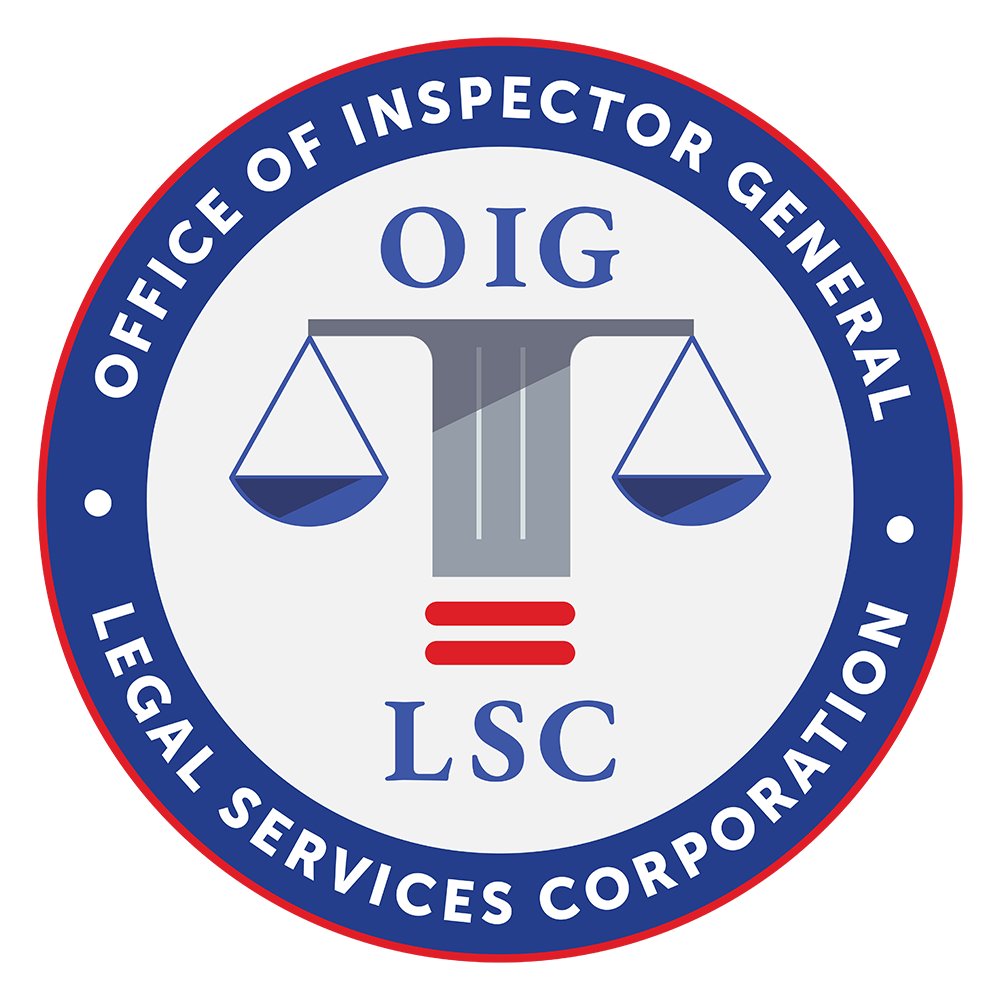As part of its Fraud Corner Series, the Office of Inspector General (OIG) is providing Legal Services Corporation (LSC) Grantees with the following information on "best practices" to help them identify and prevent fraudulent activity, and specifically to remind them of the impact nepotism may have on program activities. Nepotism occurs whenever a hiring, contracting or other business decision is made based on a family or other close personal relationship rather than the objective merits of the job candidate or business proposal.
As a condition of receiving LSC funds, LSC's basic field grant terms and conditions require LSC grant recipients to maintain a written conflict of interest policy covering both staff and board members. In addition, the Internal Revenue Service requires nonprofits to indicate on their tax returns whether they maintain a conflict of interest policy and, if so, to describe how they monitor and enforce compliance with the policy. Moreover, the OIG or LSC may question costs relating to funds expended based on improper considerations, and federal laws relating to the improper expenditures of federal funds are fully applicable to LSC grant funds.
Complaints alleging nepotism within LSC grantees are among the most frequently received on the OIG Hotline. Such complaints typically involve grantee management hiring or contracting with family members or close friends. Some complaints allege a lack of opportunity for grantee staff to compete for newly created or vacant positions that were subsequently filled by family members or friends; others focus on a family member or close friend who is indirectly supervised by a senior manager, or contracts given to vendors who are close personal friends or relatives of the grantee employees awarding or overseeing the contracts.
Nepotism is particularly troublesome in organizations financed by grants or donations because of the increased need such organizations have for accountability and transparency to grantors and donors. In addition, a manager's perceived favoritism toward a relative or personal friend can seriously affect the morale of other workers, who may have less incentive to perform their responsibilities diligently if they believe their path to promotion will be undermined by nepotism. For the same reasons, nepotism can impede talent retention. Moreover, a manager supervising a relative or close personal friend of the Executive Director or senior management may have a difficult time providing constructive feedback to the family-connected employee.
The combined income of family members and friends hired by a senior manager may sometimes represent a significant amount of a grantee's overall payroll and benefit costs. OIG investigative work at one LSC grantee disclosed that the Executive and four other family members employed at the grantee received in excess of $600,000 per year in combined total compensation. Subsequent to our review, an additional family member of the Executive Director was hired by the grantee.
OIG investigations have also uncovered instances in which relatives or close personal associates of senior managers have been hired without a competitive process. In several cases, those individuals abused time and attendance policies, or received improper overtime/compensatory time, salary advances, bonuses, and reimbursement for unauthorized travel.
In addition, several grantees have entered into contracts with family members or close personal associates without a proper vetting or bidding process. On occasion, such contracting activity has resulted in unqualified individuals performing the work. In other cases, family members and close personal associates of grantee employees have been paid despite the work having been only partially performed or not performed at all. Such cases may result in the relevant costs being questioned, or in criminal prosecutions for fraud.
Family members should not be hired or supervised by a family member. In some cases we have found that a family member is nominally supervised by a non-relative but in actuality the non-relative is only a figure-head doing the bidding of the Executive Director or senior official. At the very least such circumstances place the individual who is officially responsible for supervising the family member in an undesirable position.
This is not to imply that employees or contractors who are relatives or close personal friends of senior management are not eligible for employment or contracting opportunities; rather, the OIG suggests that hiring or contracting decisions with such individuals need to be completed in a transparent manner with adherence to the grantee's established policies and, when appropriate, with Board involvement and oversight.
Policy Development as a Best Practice
In light of the foregoing, LSC grantees should ensure their conflicts of interest policies specifically include provisions addressing nepotism in employment and contracting.
Such provisions should at least require that, when a grantee employee's close friend or relative is involved in a hiring or contracting decision, the grantee employee should disclose that relation to the appropriate parties and officially recuse themselves from the process. When grantee management has decided to hire or contract with a grantee employee's family member or close personal friend, the best course of action may be for the grantee to provide notice of the decision and request approval from its Board of Directors.
If you have any questions or comments or would like additional information about this post please contact Daniel O'Rourke, OIG Assistant Inspector General for Investigations, at (202) 295-1651 or by email DORourke@oig.lsc.gov.
